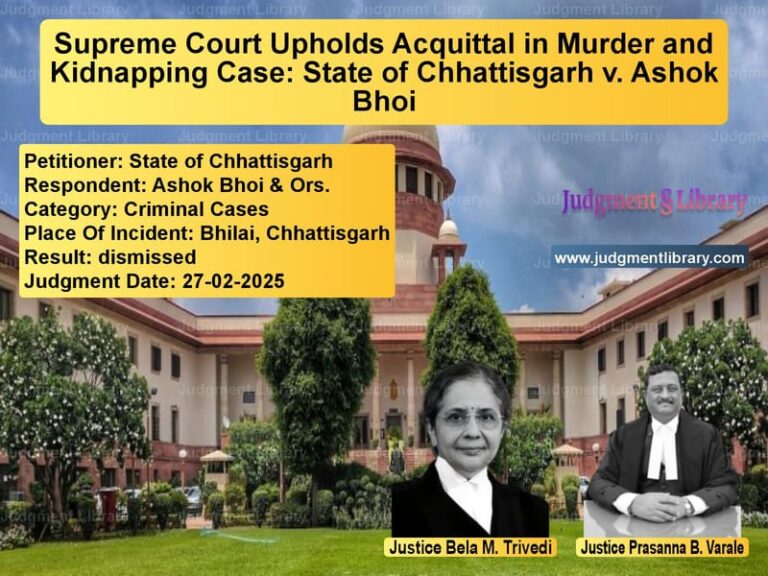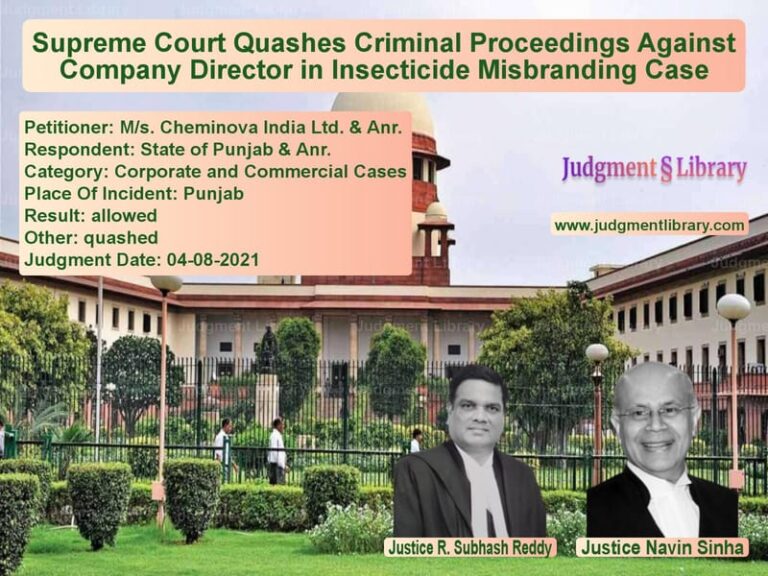Tax Deduction on Commission: Bharti Airtel vs. Income Tax Department Judgment Analysis
The Supreme Court of India recently delivered a significant judgment in the case of Bharti Cellular Limited (now Bharti Airtel Limited) vs. Assistant Commissioner of Income Tax, Circle 57, Kolkata. The case primarily revolved around the liability of telecom service providers to deduct tax at source (TDS) under Section 194-H of the Income Tax Act on commission or brokerage paid to distributors and franchisees selling prepaid mobile recharge cards.
The judgment is crucial as it resolves conflicting decisions from different High Courts. The Delhi and Calcutta High Courts had held that telecom companies were liable to deduct TDS, whereas the Rajasthan, Karnataka, and Bombay High Courts ruled in favor of telecom operators, stating that such transactions were not commission-based but rather principal-to-principal sales.
Background of the Case
Bharti Airtel, along with other telecom companies, had entered into franchise and distribution agreements for the sale of prepaid SIM cards and recharge vouchers. The Income Tax Department argued that these transactions fell under Section 194-H as ‘commission or brokerage’ payments. However, Bharti Airtel contended that the distributors and franchisees were independent businesses purchasing these prepaid products at a discounted price for resale, which did not constitute a principal-agent relationship.
Key Legal Provisions Discussed
- Section 194-H of the Income Tax Act: This provision mandates TDS on any payment classified as commission or brokerage, except in specific exclusions.
- Explanation (i) to Section 194-H: It defines ‘commission or brokerage’ as any payment received by a person acting on behalf of another for services rendered in transactions related to goods or assets.
- Section 182 of the Indian Contract Act, 1872: Defines the principal-agent relationship, where an agent represents or acts on behalf of a principal in transactions with third parties.
Arguments by the Petitioner (Bharti Airtel)
- The company asserted that its distributors and franchisees were independent contractors who bought prepaid products at a discounted price and resold them at a price they determined.
- There was no obligation on the franchisee to sell at a fixed price, and they bore the risk of loss.
- The agreement did not create a fiduciary relationship where distributors acted on behalf of the telecom operator.
- The Department of Telecommunications (DoT) regulations mandated that SIM cards remained the property of the operator until sold to the final customer, but this did not establish a principal-agent relationship.
Arguments by the Respondent (Income Tax Department)
- The Department contended that the discount given to distributors was, in effect, a commission, making them liable for TDS deduction under Section 194-H.
- Since the telecom companies controlled the terms of sale, pricing, and marketing, they exercised substantial control over the distributors.
- Distributors were required to submit customer details, further indicating an agency relationship.
Key Observations by the Supreme Court
- The Court emphasized that a principal-agent relationship exists only when an agent acts on behalf of the principal and has the power to bind them in transactions with third parties.
- The mere existence of guidelines or control over branding and marketing by telecom operators does not establish an agency relationship.
- The distributor/franchisee model in the telecom industry is a principal-to-principal relationship where goods are purchased and resold for a margin.
- The revenue generated by distributors is not ‘commission’ but the difference between the discounted purchase price and the resale price.
Final Judgment and Ruling
The Supreme Court ruled that Bharti Airtel and other telecom companies were not liable to deduct TDS under Section 194-H on discounts given to distributors. It upheld the decisions of the Rajasthan, Karnataka, and Bombay High Courts while overturning the rulings of the Delhi and Calcutta High Courts.
Impact of the Judgment
- It provides relief to telecom service providers, clarifying that distributor discounts are not subject to TDS under Section 194-H.
- The ruling has implications for other industries with similar distributor models, such as FMCG, pharmaceuticals, and automobile sectors.
- The judgment reinforces the importance of distinguishing between a principal-agent relationship and a principal-to-principal transaction.
- Businesses can now structure their agreements with greater certainty regarding tax liabilities.
Conclusion
The Supreme Court’s decision in this case brings clarity to the interpretation of Section 194-H in the context of distributor and franchisee agreements. It reaffirms that commercial transactions where goods are bought and resold independently do not constitute an agency relationship, thereby exempting them from TDS on discounts. This landmark ruling will guide future tax assessments and business transactions across various industries.
Petitioner Name: Bharti Cellular Limited (now Bharti Airtel Limited).Respondent Name: Assistant Commissioner of Income Tax, Circle 57, Kolkata.Judgment By: Justice Sanjiv Khanna, Justice S.V.N. Bhatti.Place Of Incident: Kolkata.Judgment Date: 28-02-2024.
Don’t miss out on the full details! Download the complete judgment in PDF format below and gain valuable insights instantly!
Download Judgment: bharti-cellular-limi-vs-assistant-commission-supreme-court-of-india-judgment-dated-28-02-2024.pdf
Directly Download Judgment: Directly download this Judgment
See all petitions in Income Tax Disputes
See all petitions in GST Law
See all petitions in Tax Evasion Cases
See all petitions in Banking Regulations
See all petitions in Tax Refund Disputes
See all petitions in Judgment by Sanjiv Khanna
See all petitions in Judgment by S.V.N. Bhatti
See all petitions in allowed
See all petitions in supreme court of India judgments February 2024
See all petitions in 2024 judgments
See all posts in Taxation and Financial Cases Category
See all allowed petitions in Taxation and Financial Cases Category
See all Dismissed petitions in Taxation and Financial Cases Category
See all partially allowed petitions in Taxation and Financial Cases Category







